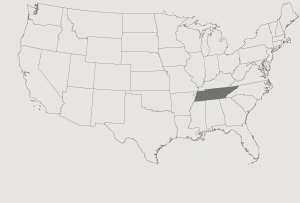Tradition Singer


- Accordionist
- Advocate
- Appalachian
- Artisan
- Ballads
- Bandleader
- Banjo Player
- Basketmaker
- Beadworker
- Bess Lomax Hawes Award
- Blacksmith
- Bluegrass
- Blues
- Boatbuilder
- Cajun
- Capoeira Angola
- Ceramicist
- Clarinetist
- Composer
- Conjunto
- Creole
- Cuatro Player
- Dancer
- Dobro Player
- Drum Maker
- Drummer
- Egg Decorator
- Embroiderer
- Fiddler
- Flute Player
- Gospel
- Guitarist
- Hardanger
- Harmonica
- Hula
- Instrument Maker
- Kathak
- Klezmer
- Lace Maker
- Lindy Hop
- Luthier
- Mandolin Player
- Mardi Gras Chief
- Mask Maker
- Metalsmith
- Multi-Instrumentalist
- Musician
- Needleworker
- Ornamental Ironworker
- Oud Player
- Pianist
- Poet
- Polka
- Potter
- Prim Player
- Quillwork
- Quilter
- Regalia Maker
- Rosemaler
- Saddle Maker
- Santero
- Scholar
- Sephardic
- Shaker
- Shape Note
- Singer
- Skin Sewer
- Slack Key
- Snowshoe Designer and Builder
- Songster
- Songwriter
- Spiritual/Shout Performers
- Spoken Word
- Steel Drum
- Step Dancer
- Stick Dancer
- Stone Carver
- Storyteller
- Straw Appliqué Artist
- Straw Artist
- String Band
- Swamp Blues
- Tamburitza
- Tap
- Tea Ceremony Master
- Tejano
- Toissan muk'yu Folk Songs
- Tradition Bearer
- Trombonist
- Uillean Piper
- Ukulele Player
- Violinist
- Weaver
- Western
- Western Swing
- Wood Carver
- Work Songs
- Yiddish
- Yoruba Orisha
- Zydeco
Artist Fairfield Four


- Horace P. Axtell
- Sister Mildred Barker
- Shirley Caesar
- Inez Catalon
- Hazel Dickens
- Dixie Hummingbirds
- Bo Dollis
- David "Honeyboy" Edwards
- Fairfield Four
- Thomas Edison "Brownie" Ford
- Clarence Fountain and the Blind Boys
- Henry Gray
- Eduardo "Lalo" Guerrero
- Joe Heaney
- Solomon and Richard Ho'opi'i
- John Dee Holeman
- John Lee Hooker
- Hua Wenyi
- Janie Hunter
- Khamvong Insixiengmai
- Wanda Jackson
- Claude Joseph Johnson
- Bessie Jones
- Raymond Kane
- Everett Kapayou
- Genoa Keawe
- Norman Kennedy
- Riley "B.B." King
- Fatima Kuinova
- Doyle Lawson
- Lily May Ledford
- Agustin Lira
- Albert "Sunnyland Slim" Luandrew
- Wade Mainer
- Del McCoury
- Brownie McGhee
- Hugh McGraw
- Sylvester McIntosh
- McIntosh County Shouters
- Amma D. McKen
- Jim and Jesse McReynolds
- John Mealing and Cornelius Wright, Jr.
- Lydia Mendoza
- Bill Monroe
- Alexander H. Moore, Sr.
- Carmencristina Moreno
- Frank Newsome
- Ng Sheung-Chi
- Glenn Ohrlin
- Oneida Hymn Singers of Wisconsin
- Jack Owens
- Harilaos Papapostolou
- Irván Pérez
- Joe Willie "Pinetop" Perkins
- Buck Ramsey
- Ola Belle Reed
- Almeda Riddle
- Beyle Schaechter-Gottesman
- Morgan Sexton
- Moges Seyoum
- Willie Mae Ford Smith
- Clyde "Kindy" Sproat
- Ralph Stanley
- Mavis Staples
- The Birmingham Sunlights
- Koko Taylor
- Paul Tiulana
- Henry Townsend
- Fred Tsoodle
- Cleofes Vigil
- Albertina Walker
- Doug Wallin
- Arthel "Doc" Watson
- Dewey Williams
- Warner Williams
- Elder Roma Wilson
- Nimrod Workman
- The Paschall Brothers
- Sheila Kay Adams
- Carol Fran
- David Ivey
- Manuel "Cowboy" Donley
- Singing and Praying Bands of Maryland and Delaware
- Rufus White




























